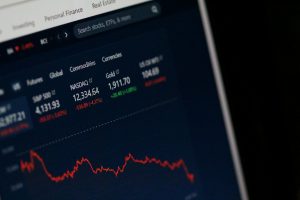
DAX Faces Mild Decline Despite Strong Start to the Week
Following a robust start to the week, the German DAX index is expected to see slight losses on Tuesday. According to IG broker estimates, the DAX was projected to open around 0.3% lower at 24,010 points, roughly two and a half hours before Xetra trading began. The ongoing correction phase that began after the record high of 24,479 points in early June continues to hold. Despite Monday’s promising momentum, the index failed to break out of its consolidation phase, which had appeared increasingly likely. On Monday, the DAX closed at 24,073.67 points, up by 1.2% and near its daily high.
Tariff Uncertainty Continues to Impact Investor Sentiment
Investor nerves remain strained due to persistent trade tensions between the United States and multiple global partners. President Donald Trump has once again delayed the implementation of new import tariffs, pushing the deadline from July 9 to August 1. During a press briefing, Trump described the new deadline as “binding, but not 100%,” suggesting room for further changes.
The U.S. administration released over a dozen letters detailing varied tariff rates aimed at countries including Japan and South Korea. From August 1, a general 25% import tax on goods from these countries is set to take effect, in addition to some sector-specific duties. Other nations, such as South Africa and Laos, have since been added to the list. According to EU officials, the European Union is not expected to receive such a tariff letter.
Michael O’Rourke, Chief Market Strategist at JonesTrading, noted that the announcement was not entirely unexpected and emphasized that there is still time to negotiate until August 1.
US Markets Falter After Holiday Weekend
U.S. stocks saw a downturn on Monday following the extended holiday weekend. Investor sentiment weakened after the Trump administration began sending formal tariff notifications. Although markets showed signs of pressure, indices recovered somewhat by the close after the delay in tariff enforcement was confirmed. The Dow Jones Industrial Average dropped 0.94% to 44,406.36 points, while the S&P 500 and NASDAQ 100 both declined by 0.79%.
Asian Markets Hold Up Despite Tariff Threats
Asian equities showed resilience in the face of escalating U.S. tariff threats. Japanese, Chinese, and Hong Kong markets all posted gains on Tuesday, supported by news that the White House had postponed the tariff deadline. The extension allows additional time for diplomatic efforts. In Tokyo, the Nikkei 225 rose by 0.3% to 39,711 points in late trading, while the CSI 300 index in China gained 0.7%. Hong Kong’s Hang Seng index climbed by 0.8%. A weaker yen also contributed positively to the performance of Japanese stocks.
Key Market Indicators
-
DAX: 24,073.67 (+1.20%)
-
Euro Stoxx 50: 5,341.54 (+1.00%)
-
Dow Jones: 44,406.36 (-0.94%)
-
S&P 500: 6,229.98 (-0.79%)
-
NASDAQ 100: 22,685.57 (-0.79%)
-
Nikkei 225 (Tokyo): 39,711 (+0.3%)
-
CSI 300 (China): +0.7%
-
Hang Seng (Hong Kong): +0.8%
Currency and Commodity Update
-
EUR/USD: 1.1742 (+0.29%)
-
USD/JPY: 145.95 (-0.07%)
-
EUR/JPY: 171.37 (+0.22%)
-
Bitcoin: $107,999 (-0.27%)
-
Brent Crude: $69.27 (-$0.30)
-
WTI Crude: $67.58 (-$0.35)
-
German Bund Future: 129.95 (-0.12%)
Conclusion
Global markets remain on edge due to the unpredictable nature of U.S. trade policy. While Asian indices managed to shrug off the latest tariff threats, European and American markets showed more hesitation. All eyes are now on whether diplomatic negotiations can de-escalate the situation before the August 1 deadline, potentially calming investor nerves and stabilizing the markets.




